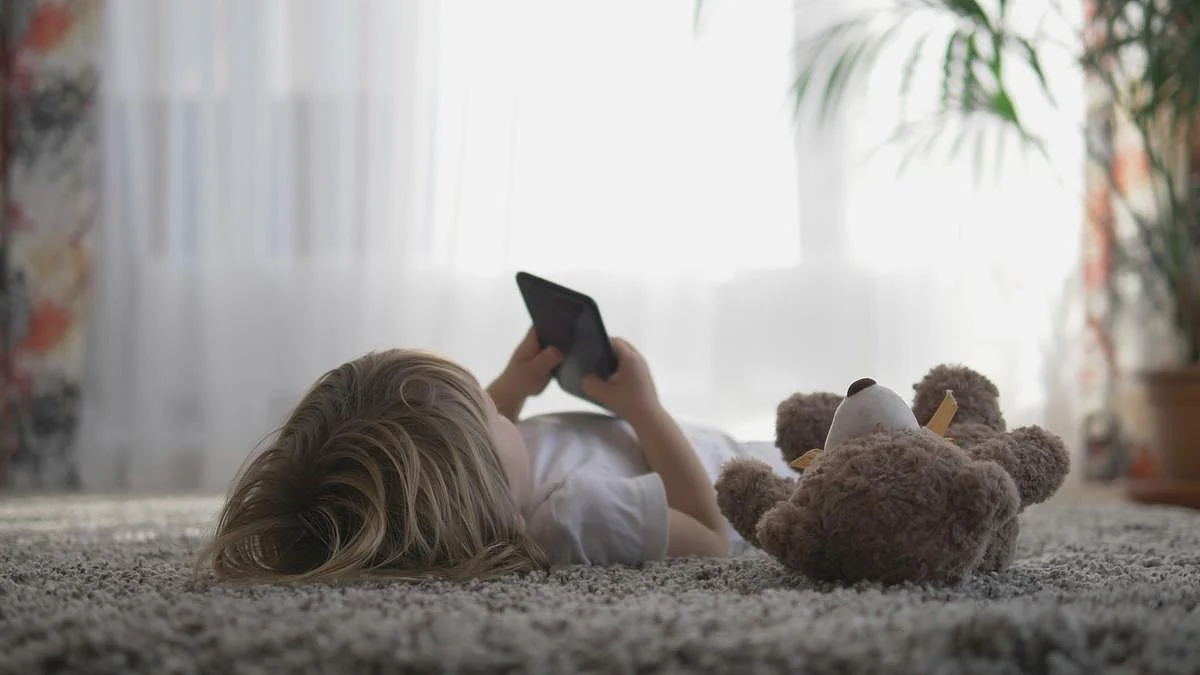Get Healthy!

- Dennis Thompson
- Posted July 22, 2025
Early Smartphone Access Harms Developing Minds, Study Warns
Care about your kid’s well being?
Then best not give them a smartphone until they’re a full-fledged teenager, a major new study says.
Kids given a smartphone when they were younger than 13 tend to have poorer mental health and well-being, researchers report in the Journal of Human Development and Capabilities.
Specifically, people between 18 and 24 who got their first smartphone at 12 or younger had higher odds of suicidal thoughts, aggression, detachment from reality, poorer emotional regulation and low self-worth, researchers report.
Early exposure to toxic social media explains much of the link between young smartphone access and poorer mental health, researchers said. Other contributing factors may include cyberbullying, disrupted sleep and poor family relationships.
“Our data indicate that early smartphone ownership— and the social media access it often brings — is linked with a profound shift in mind health and wellbeing in early adulthood,” says lead researcher Tara Thiagarajan, chief scientist of Sapien Labs, said in a news release.
“I was initially surprised by how strong the results are,” she said. “However, when you give it due consideration, it does begin to make sense that the younger developing mind is more compromised by the online environment given their vulnerability and lack of worldly experience.”
For the study, researchers analyzed data from more than 100,000 young adults around the world as part of the Global Mind Project, an ongoing research effort aimed at assessing the effects of modern society on mental health.
Each of the participants filled out a questionnaire to help determine their Mind Health Quotient (MHQ) – a measurement of their social, emotional, cognitive and physical well-being.
The team focused on members of Generation Z born between 1997 and 2012 who were the first to grow up with smartphones and social media from early childhood.
Results show that young adults who got their first smartphone before becoming teens had lower MHQ scores than those who got a phone later.
In addition, the younger a person got their first smartphone, the worse their mental health and overall well-being, researchers said.
For example, about half (48%) of girls who got a smartphone at age 5 or 6 report suicidal thoughts, compared with 28% who got a smartphone at 13, the study says.
Girls who got smartphones at a young age were more likely to have diminished self-image, self-worth and confidence, as well as less emotional resilience, researchers found.
Meanwhile, boys were more likely to have lower stability, self-worth and empathy.
Looking into potential causes, researchers found that early access to social media explains about 40% of the link between earlier smartphone ownership and poorer mental health in young adulthood.
The results bolster growing concerns regarding how AI-driven social media algorithms amplify harmful content and encourage children to compare their lives to those of apparently happier and better-off influencers, researchers argue.
Poor family relationships (13%), disrupted sleep (12%) and cyberbullying (10%) also contributed to the link, the study says.
“Based on these findings, and with the age of first smartphones now well under age 13 across the world, we urge policymakers to adopt a precautionary approach, similar to regulations on alcohol and tobacco, by restricting smartphone access for under 13s, mandating digital literacy education and enforcing corporate accountability,” Thiagarajan said.
Several countries have already banned or restricted cell phone use in schools, including France, the Netherlands, Italy and New Zealand, researchers noted.
In the U.S., Alabama, Arkansas, Nebraska, New York, North Carolina, North Dakota, Oklahoma and West Virginia have passed legislation requiring schools to limit or ban smartphones, researchers added.
“Our evidence suggests childhood smartphone ownership, an early gateway into AI-powered digital environments, is profoundly diminishing mind health and well-being in adulthood with deep consequences for individual agency and societal flourishing,” Thiagarajan said.
“That said, I think it is also important to point out that smartphones and social media are not the only assault to mental health and crisis facing younger adults,” she said. “It explains some of the overall decline but not all of it.”
The study can’t draw a direct cause-and-effect link between early smartphone access and poorer mental health as a young adult, researchers noted. More research is needed to confirm this link and explore its causes.
“Now, while more research is needed to unravel the causal mechanisms, waiting for irrefutable proof in the face of these population-level findings unfortunately risks missing the window for timely, preventative action,” Thiagarajan said.
More information
Johns Hopkins Medicine has more on social media and children’s mental health.
SOURCE: Taylor & Francis, news release, July 21, 2025
